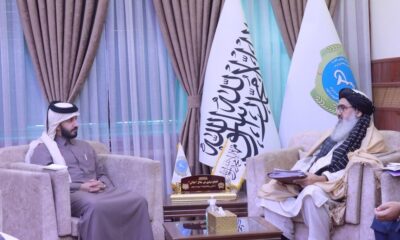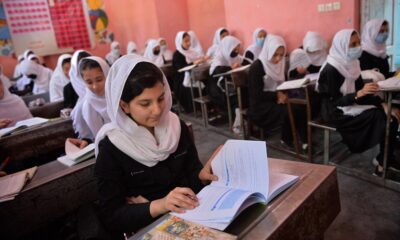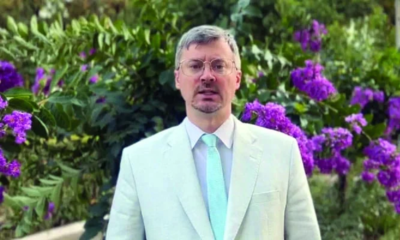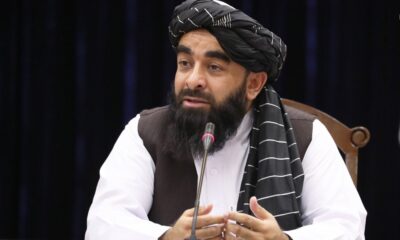Latest News
Time running out for Afghan peace process, more efforts needed – EU envoy
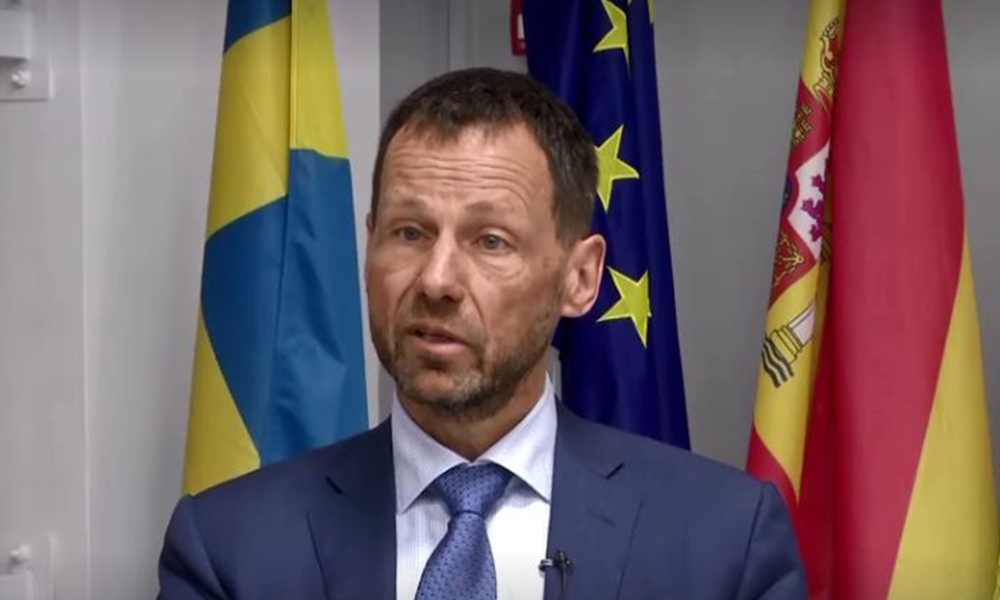
The European Union’s envoy for Afghanistan said on Wednesday time was running out for Afghan peace negotiations and more needed to be done to boost the discussions as international forces withdraw from the war-torn nation.
Afghan government and Taliban negotiators have met in Qatar’s capital Doha over the past two weeks to discuss the peace process after a pause when negotiations largely stalled earlier this year.
Talks began in September but the already-slowing negotiations largely broke off in April, when the United States announced it would withdraw its forces by Sept. 11, after a May 1 deadline the Trump administration had agreed with the Taliban.
“Time is getting shorter as we speak,” Tomas Niklasson, the EU’s acting special envoy for Afghanistan, told Reuters during a visit to Pakistan’s capital. “There has been no or very little progress on substance, so from that perspective more has to be done.”
Taliban spokesman Suhail Shaheen said on Twitter that on Tuesday groups from both negotiation teams had met to discuss “recalibration of order and sequence of talks sessions.”
But Niklasson said that to show true progress, substantive proposals needed to be put on the table on each side’s plans for the country and the outcome of the talks, which the Taliban had not yet provided.
“It’s quite possible that a proposal from the Taliban might be maximalist, maybe they would just put an Islamic Emirate on the table, which is perfectly fine for negotiations and then you can see where you can make compromises and compromises will have to be made by both sides,” he said.
Taliban spokesman Zabihullah Mujahid said the group did have a written plan but would not share it publicly or with foreigners and would save it for substantive negotiations.
The envoy held meetings with officials in Islamabad this week and said he was confident that Pakistan saw it in its interests to encourage a negotiated peace settlement in neighbouring Afghanistan, but reiterated Pakistan should use all leverage it to had to encourage the Taliban to deliver a written peace proposal.
Pakistan’s ties to the Taliban have been criticised in the past by the West but foreign capitals including Washington have in recent years acknowledged Pakistan for working to bring the insurgents to the negotiating table.
Pakistan’s foreign minister has said in recent days that Pakistan was fully supporting the Afghan peace process but did not want to be considered the “scapegoat” and blamed if negotiations fell apart.
“I see so far little progress in terms of (the Taliban) putting a proposal on the table but whether that is because insufficient leverage is there or because the leverage that is there hasn’t been used … fully I don’t really know,” Niklasson said.
“But I have confidence that Pakistan realises the importance and the urgency of the situation and that it is in its own interest to use the leverage it has.”
Latest News
Afghanistan has the right to access Amu River’s water: Uzbek minister
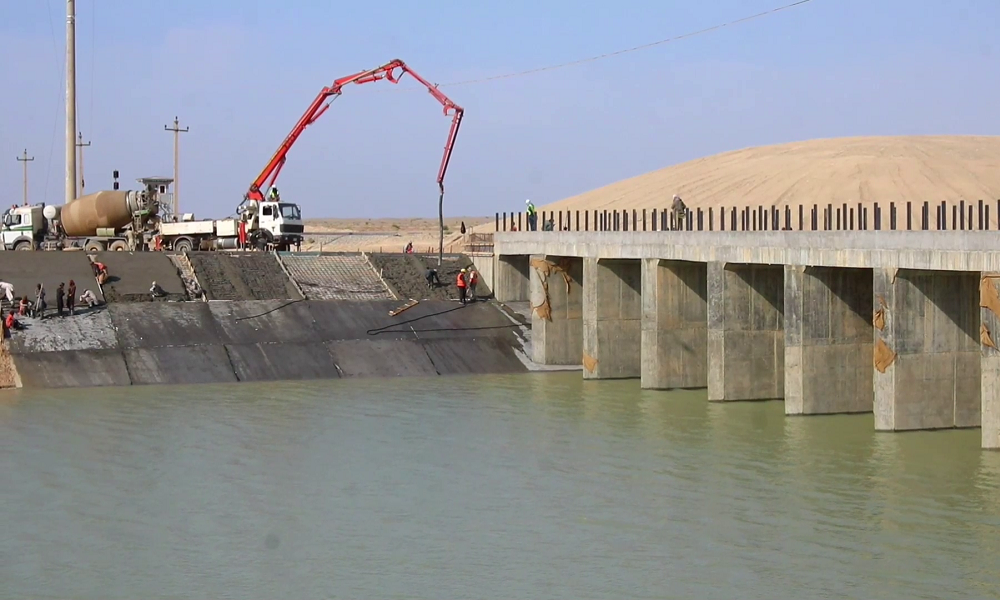
Uzbekistan’s Minister of Water Resources, Shavkat Khamraev, says Afghanistan receives its share of water from the Amu River through the construction of the Qosh Tepa Canal, and that Tashkent has no problem with this.
Khamraev stated that Afghanistan has a legitimate right to access the water of the Amu River and urged his citizens not to be influenced by rumors or incorrect information.
“The Afghans are our relatives. They also have the right to take water from the Amu River. Should we pick up weapons and fight? No, we are building better relations,” said Khamraev.
Amu River is one of the most important water sources in the northern region of the country, and the countries of Tajikistan, Uzbekistan, and Turkmenistan have been utilizing it for many years.
However, Afghanistan has not used this water for many years, and now the Islamic Emirate wants to secure its share by completing the Qosh Tepa Canal.
Qosh Tepa Canal is over 280 kilometers long, and once completed, it will irrigate 1.2 million hectares of land in the provinces of Balkh, Jowzjan, and Faryab.
Experts have stated that with the completion of this canal and investment in it, Afghanistan will achieve self-sufficiency in wheat production.
Latest News
UN ‘deeply disappointed’ over ongoing ban on girls’ secondary education

The UN in Afghanistan, UNAMA, said Wednesday it was deeply disappointed that for the fourth consecutive year, girls have again been denied access to secondary education.
According to a statement issued by UNAMA, this “will only compound Afghanistan’s human rights, humanitarian, and economic crises.
“The new school year has started in Afghanistan, but yet again with a glaring and damaging absence of girls from the classrooms. This is not only harming their future prospects, but the peace and prosperity of all Afghans,” said Roza Otunbayeva, the Secretary-General’s Special Representative for Afghanistan and head of the United Nations Assistance Mission in Afghanistan.
According to Unicef, the denial of female access to education as so far impacted 2.2 million Afghan girls, including 400,000 this year. If the ban remains in place until 2030, over four million girls will have been impacted.
“I am deeply disappointed that the de facto authorities continue to ignore the demands of communities across Afghanistan, who have endured decades of war and continue to face a terrible humanitarian crisis. This ban reduces Afghanistan’s prospects of recovery, and must be reversed,” said Otunbayeva.
“This ban is also one of the main reasons Afghanistan continues to be isolated from the international community, which is also holding back recovery. Still, I urge international donors to continue to support the Afghan people, including in the education sector where possible,” Otunbayeva said.
Latest News
Russian envoy to Islamabad says IEA’s efforts to combat terrorism have been ‘insufficient’

Russia’s Ambassador to Pakistan, Albert P. Khorev, has said Afghanistan’s efforts to combat militancy have been inadequate but attributed this to economic challenges and prevailing security conditions in the country.
He said ISIS (Daesh) was the greatest threat to Russia’s national and regional security, and that Moscow is closely monitoring the situation.
Khorev added that Moscow is also working with regional partners under the “Quartet” format to counter terrorism.
He went on to state that Russia also continues to collaborate with regional countries under the Collective Security Treaty Organization (CSTO) to eliminate militancy.
He reaffirmed Moscow’s support for Pakistan, Afghanistan, and other regional states in tackling militant threats.
Khorev also dismissed media reports that Pakistan was supplying weapons to Ukraine.
“We have not found any proof of Pakistani arms supplies in the Ukraine-Russia conflict. All such claims are baseless.”
The Islamic Emirate of Afghanistan has meanwhile repeatedly countered that Daesh has been suppressed in Afghanistan and that the group’s activities are rooted in Pakistan.
-

 International Sports5 days ago
International Sports5 days agoBoxing legend George Foreman dies at 76
-
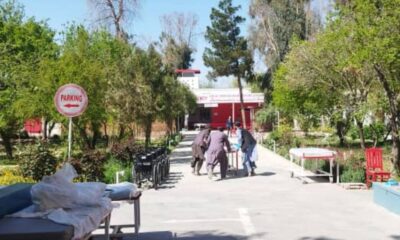
 Latest News5 days ago
Latest News5 days agoEighteen injured after dispute between two brothers in Helmand
-

 International Sports4 days ago
International Sports4 days agoRCB bring fireworks to opening night of IPL 2025
-
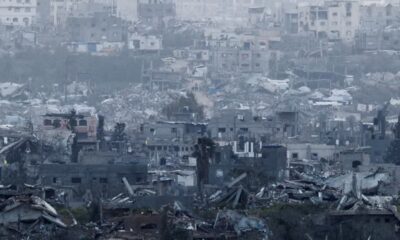
 Regional5 days ago
Regional5 days agoHamas studies US ‘bridge’ proposal for truce as Israel escalates return to war
-
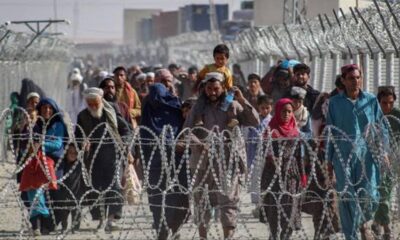
 Latest News4 days ago
Latest News4 days agoTorkham border reopens for pedestrians
-
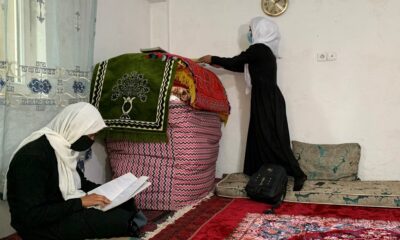
 Latest News5 days ago
Latest News5 days agoBan on girls’ education in Afghanistan will be ‘catastrophic’: UNICEF
-

 International Sports3 days ago
International Sports3 days agoIPL 2025: Sunrisers on a batting rampage; triumph over Rajasthan Royals
-
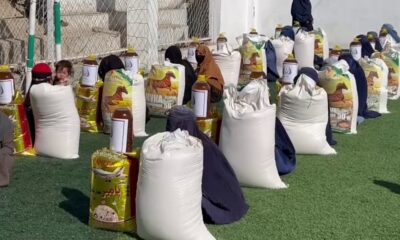
 Latest News4 days ago
Latest News4 days agoBayat Foundation distributes food aid to dozens of needy families in Balkh






